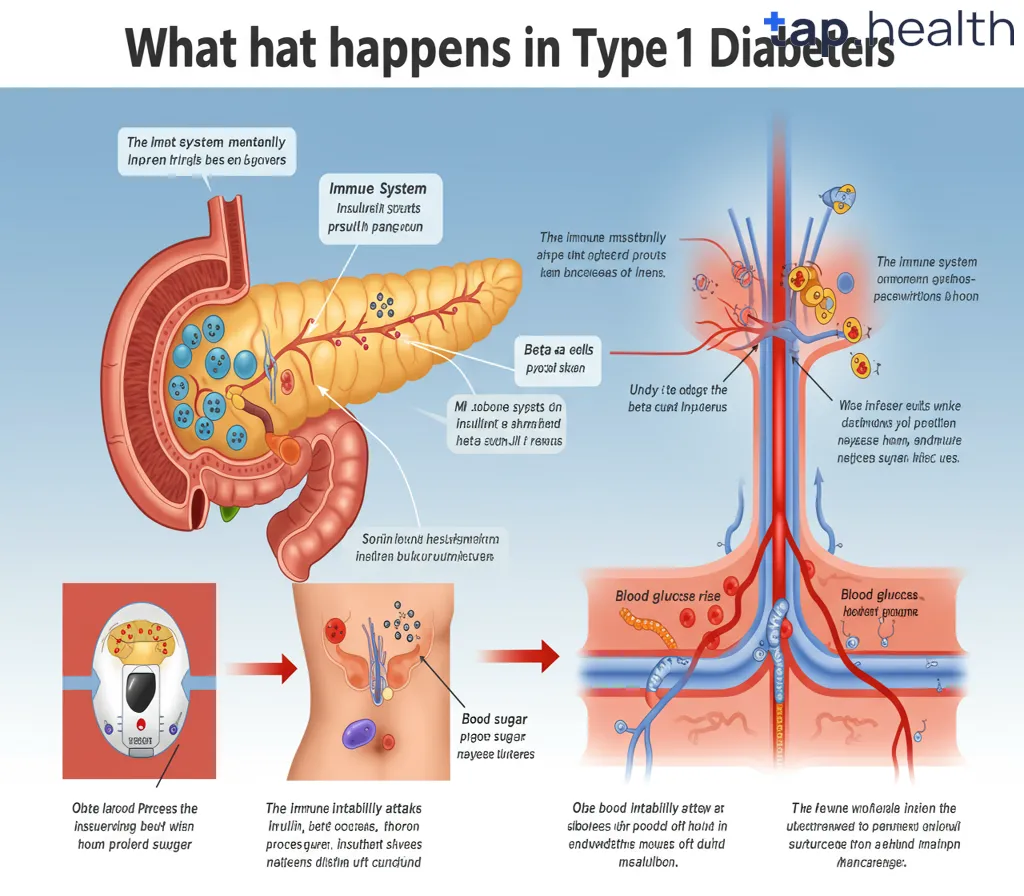Table of Contents
- Diabetes & Alcohol: Navigating the Risks Safely
- Alcohol and Diabetes: A Guide to Moderate Consumption
- Understanding the Effects of Alcohol on Blood Sugar
- Diabetes Management: The Role of Alcohol Moderation
- Is Alcohol Safe for People with Diabetes? Expert Advice
- Frequently Asked Questions
- References
Living with diabetes requires careful management of many aspects of your life, and understanding your relationship with alcohol is crucial. This blog post tackles the complex topic of Diabetes and Alcohol: Understanding the Risks, Benefits, and Importance of Moderation. We’ll explore the potential dangers of alcohol consumption for those with diabetes, including its impact on blood sugar levels and long-term health. But we’ll also look at the nuanced reality – for some, occasional, moderate alcohol intake might be manageable. Let’s delve into the facts and empower you to make informed choices about your health.
Diabetes & Alcohol: Navigating the Risks Safely
Understanding the Complex Relationship
For many individuals in India and other tropical countries, social gatherings often involve alcohol consumption. However, for the significant population of people with diabetes, aged 20-64 (61% of those with diabetes globally) and 65+ (39% globally), navigating this relationship requires careful consideration. The impact of alcohol on blood sugar levels can be unpredictable, especially with pre-existing conditions like diabetes. Alcohol can interfere with medication, potentially leading to dangerous fluctuations in blood glucose.
Managing Your Risks
The key is moderation. For those with diabetes, even moderate alcohol consumption presents risks. It’s crucial to be aware of these potential dangers and take proactive steps. Always consume alcohol with a meal to slow absorption. Avoid sugary mixers, opting instead for unsweetened options like water or diet soda. Regularly monitor your blood sugar levels before, during, and after alcohol consumption, adjusting your insulin or medication accordingly as advised by your doctor. For more specific advice on managing alcohol consumption, you might find our guide on How to Safely Enjoy Alcohol While Managing Diabetes helpful.
Regional Considerations & Practical Tips
In many Indian and tropical cultures, certain alcoholic beverages are commonly consumed. It’s important to understand the specific sugar and carbohydrate content of these drinks and choose wisely. Consider consulting a doctor or certified diabetes educator for personalized guidance, particularly given the prevalence of diabetes within these age groups. Regular check-ups are vital for managing your condition effectively and mitigating the risks associated with alcohol. Remember, responsible alcohol consumption is key to maintaining good health when living with diabetes. Prioritize your health and well-being – your long-term health depends on it. As you age, managing diabetes can present additional challenges. For further insights and solutions, refer to our article on Managing Diabetes as You Age: Challenges and Solutions.
Alcohol and Diabetes: A Guide to Moderate Consumption
Managing diabetes in tropical and Indian climates presents unique challenges, and alcohol consumption adds another layer of complexity. Understanding the interplay between alcohol and blood sugar is crucial for effective diabetes management. While some believe moderate alcohol consumption might offer certain benefits, the risks often outweigh the rewards, especially in regions with high rates of diabetes and limited access to specialized healthcare.
Understanding the Risks
Alcohol can significantly impact blood sugar levels. It interferes with the body’s ability to regulate glucose, potentially leading to both hypoglycemia (low blood sugar) and hyperglycemia (high blood sugar). This fluctuation can be particularly dangerous for individuals with diabetes, increasing the risk of long-term complications like nerve damage, kidney disease, and cardiovascular problems. Furthermore, many alcoholic beverages are high in sugar, exacerbating the problem. Remember, daily consumption of sugary beverages raises diabetes risk by 26%. This is a crucial statistic to consider in regions where sugary drinks are widely consumed.
The Importance of Moderation (or Abstinence)
For individuals with diabetes, moderation is key – if alcohol is consumed at all. This means limiting intake to small amounts, such as one standard drink per day for women and two for men. However, complete abstinence is often the safest approach, especially considering the prevalence of diabetes and related health issues in many tropical and Indian countries. Always consult with your doctor or a certified diabetes educator before including alcohol in your diet. They can help you develop a personalized plan that considers your individual health status and risk factors. It’s also important to understand the potential connection between alcohol abuse and the development of diabetes, as explored in Can Alcohol Abuse Cause Diabetes? – Tap Health.
Practical Tips for Safe Consumption (If Applicable)
If you choose to consume alcohol despite the risks, prioritize low-sugar options like dry wine or spirits mixed with diet soda or water. Never drink on an empty stomach, and always pair alcohol with a meal that includes carbohydrates and protein to help stabilize blood sugar levels. Regularly monitor your blood glucose levels before, during, and after alcohol consumption. If you’re experiencing unusual test results after drinking, you might find the information in Why Do Diabetics Test Positive for Alcohol? helpful.
Conclusion
Prioritizing your health is paramount, especially when managing diabetes in a tropical or Indian climate. While moderate alcohol consumption may seem acceptable for some, it’s crucial to weigh the potential risks against the benefits. Consult a healthcare professional to determine the best course of action for you. Your health is your greatest asset.
Understanding the Effects of Alcohol on Blood Sugar
Alcohol’s Impact on Blood Glucose Levels
Alcohol consumption can significantly impact blood sugar levels, posing a considerable risk for individuals with diabetes, particularly in hot and humid climates prevalent across India and other tropical countries. The body prioritizes metabolizing alcohol, which can lead to a temporary decrease in blood glucose. This hypoglycemia can be dangerous, especially for those already managing their blood sugar. For context, remember that less than 140 mg/dL is considered normal blood glucose; 140–199 mg/dL suggests prediabetes; and 200 mg/dL or higher indicates diabetes. This initial drop can be followed by a rebound effect, causing a sharp increase in blood sugar levels hours later, potentially leading to hyperglycemia. This unpredictable fluctuation makes alcohol consumption a precarious balancing act for people with diabetes.
Factors Influencing Blood Sugar Fluctuation
Several factors influence the extent of alcohol’s impact on blood sugar. The type of alcoholic beverage, the amount consumed, the presence of other sugars (like in mixed drinks), and the individual’s overall health and diabetes management strategies all play a crucial role. In tropical countries, dehydration – a common issue in hot weather – can further exacerbate these effects, making it even more challenging to regulate blood sugar. Therefore, careful monitoring of blood glucose levels before, during, and after alcohol consumption is crucial. Understanding Blood Sugar Levels is fundamental to managing this risk.
Managing Blood Sugar with Alcohol Consumption
For individuals with diabetes in India and other tropical regions, moderation is key. This means limiting alcohol intake and carefully considering the timing of consumption relative to meals and medication. Consulting with a doctor or certified diabetes educator is vital to develop a personalized plan that considers individual health conditions and cultural contexts. Remember that responsible consumption, paired with regular blood glucose monitoring, can help mitigate the risks associated with alcohol and diabetes. Prioritizing hydration is also essential, particularly in warmer climates. Knowing what constitutes a normal blood sugar level after eating can further aid in responsible alcohol consumption.
Diabetes Management: The Role of Alcohol Moderation
Understanding Alcohol’s Impact on Blood Sugar
For individuals with diabetes in India and other tropical countries, managing blood sugar levels is paramount. Maintaining healthy blood pressure is equally crucial; the target is generally below 140/90 mmHg, although some guidelines recommend aiming for below 130/80 mmHg. Alcohol consumption can significantly impact both blood sugar and blood pressure, making moderation essential. Excessive alcohol intake can lead to hypoglycemia (low blood sugar) or hyperglycemia (high blood sugar), depending on various factors including the type of diabetes, medication, and the amount of alcohol consumed.
Alcohol and Blood Sugar Fluctuations
Alcohol interferes with the liver’s ability to release glucose, potentially causing dangerous drops in blood sugar, especially if combined with diabetes medication. This is particularly relevant for those using insulin or certain oral hypoglycemic medications. In tropical climates, dehydration from alcohol consumption can further exacerbate blood sugar imbalances. Conversely, high alcohol consumption can also lead to increased blood sugar levels. Therefore, careful monitoring is critical. Managing cholesterol is also vital, and you can learn more about How to Manage Cholesterol Levels with Diabetes?
Moderation: The Key to Safe Consumption
The key for people with diabetes in India and similar regions is moderation. This means limiting alcohol intake to a safe level, considering individual factors and consulting with a healthcare professional. This is particularly important given the prevalence of social gatherings involving alcohol in many Indian and tropical cultures. It’s vital to understand that what constitutes “moderate” can vary greatly. Always prioritize your health and consult your doctor or a certified diabetologist before including alcohol in your diet. Remember, your health is your greatest asset. For more comprehensive tips on diabetes management, check out 10 Proven Tips for Effective Diabetes Management.
Is Alcohol Safe for People with Diabetes? Expert Advice
Managing diabetes effectively is crucial, especially in regions like India and other tropical countries where lifestyle-related diseases are prevalent. The question of alcohol consumption often arises, and the answer isn’t a simple yes or no. While moderate alcohol intake might not be strictly prohibited, it’s essential to understand the potential risks and benefits for individuals with diabetes.
Understanding the Risks
Alcohol can significantly impact blood sugar levels. It interferes with the liver’s ability to regulate glucose, leading to both hypoglycemia (low blood sugar) and hyperglycemia (high blood sugar). This unpredictable fluctuation poses a serious threat, especially for those already struggling to maintain stable blood sugar. Furthermore, excessive alcohol consumption can worsen existing cardiovascular complications, a concern highlighted by the fact that smokers with diabetes face twice the mortality rate due to cardiovascular issues. In tropical climates, dehydration from alcohol can exacerbate diabetes symptoms.
Moderation and Responsible Consumption
For those who choose to consume alcohol, moderation is absolutely key. This means limiting the quantity and frequency of alcoholic beverages. Always consume alcohol with a meal to slow down absorption and minimize blood sugar spikes. Individuals with diabetes should carefully monitor their blood glucose levels before, during, and after alcohol consumption. Consulting a doctor or a certified diabetologist is crucial to determine if alcohol is safe for you and to establish safe drinking limits based on your individual needs and health condition.
Regional Considerations
In many Indian and tropical countries, cultural norms often involve social drinking. It’s vital to navigate these settings responsibly, being mindful of portion sizes and making informed choices. Prioritizing healthy eating habits and regular exercise remains paramount to managing diabetes effectively, regardless of alcohol consumption. Remember, responsible choices are crucial for long-term health and well-being. Seek professional guidance to develop a personalized diabetes management plan that considers your individual circumstances and cultural context. If you’re wondering about specific types of alcohol, you might find What Alcohol Can Diabetics Drink Type 2? helpful. Additionally, understanding the potential for unusual symptoms is important, so you may also want to read Can Diabetics Smell Like Alcohol? Causes & What to Do.
Frequently Asked Questions
Q1. How does alcohol affect my blood sugar levels if I have diabetes?
Alcohol interferes with your body’s ability to regulate blood sugar, potentially causing both dangerously low (hypoglycemia) and dangerously high (hyperglycemia) blood sugar levels. This is because alcohol can impact the effectiveness of diabetes medications and cause unpredictable blood glucose fluctuations.
Q2. Is it okay to drink alcohol occasionally if I have diabetes?
Even moderate alcohol use can be problematic for individuals with diabetes. While complete abstinence is ideal, if you choose to drink, do so in moderation, opting for low-sugar options and consuming alcohol with meals. Closely monitor your blood sugar levels after drinking.
Q3. What are the long-term risks of drinking alcohol with diabetes?
Regular alcohol consumption increases the risk of long-term diabetes complications. The unpredictable blood sugar fluctuations caused by alcohol can damage blood vessels and nerves, leading to serious health problems.
Q4. How can I minimize the risks of alcohol consumption if I have diabetes?
To minimize risks, choose low-sugar alcoholic beverages, consume alcohol with food to slow absorption, monitor your blood sugar levels frequently before, during, and after drinking, and always consult your doctor or a certified diabetes educator for personalized advice.
Q5. Where can I find more information and support for managing diabetes and alcohol consumption?
Your doctor or a certified diabetes educator is the best resource for personalized guidance on managing diabetes and alcohol consumption. They can provide tailored recommendations based on your individual health status and needs.
References
- A Practical Guide to Integrated Type 2 Diabetes Care: https://www.hse.ie/eng/services/list/2/primarycare/east-coast-diabetes-service/management-of-type-2-diabetes/diabetes-and-pregnancy/icgp-guide-to-integrated-type-2.pdf
- Diabetes Mellitus: Understanding the Disease, Its Diagnosis, and Management Strategies in Present Scenario: https://www.ajol.info/index.php/ajbr/article/view/283152/266731




